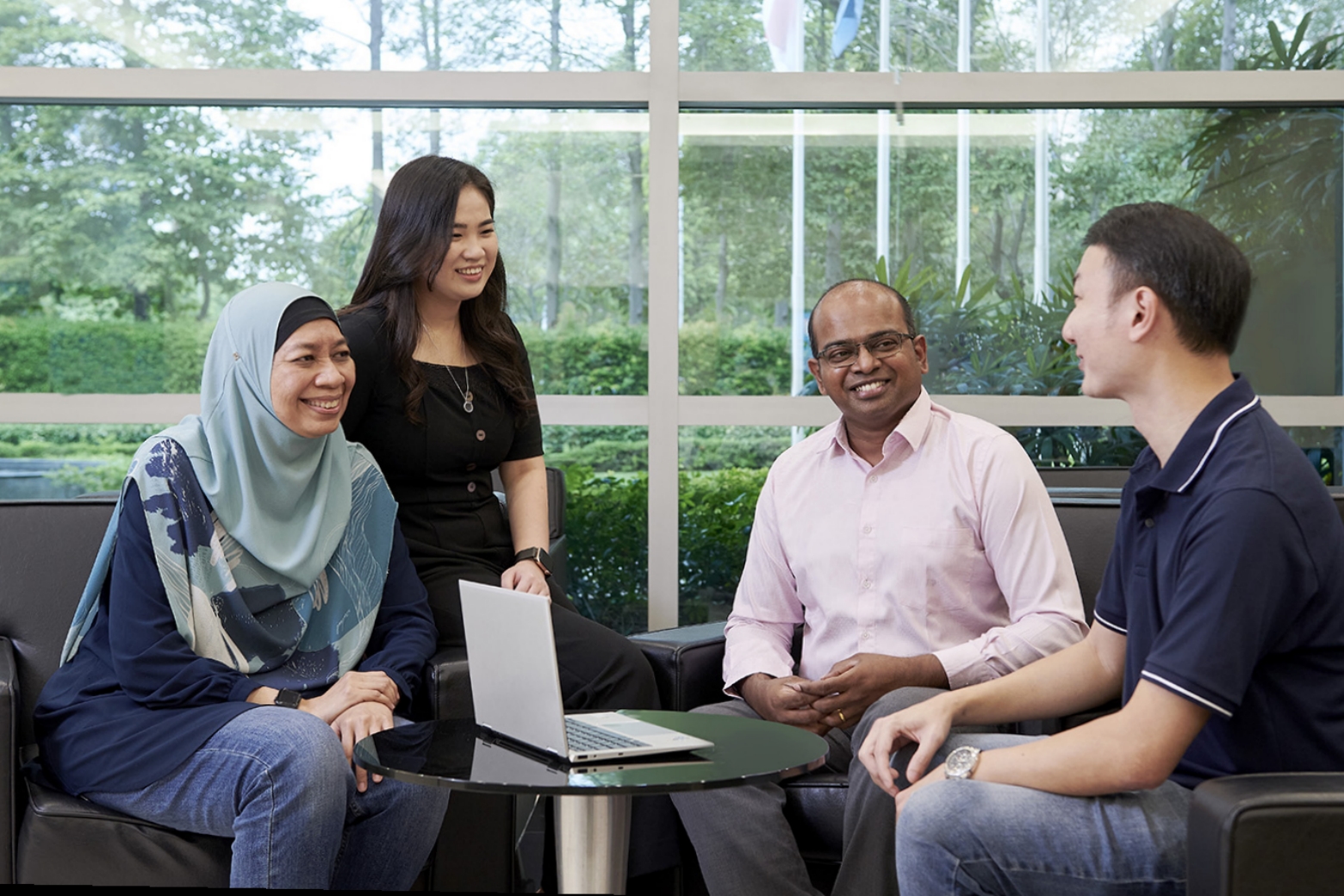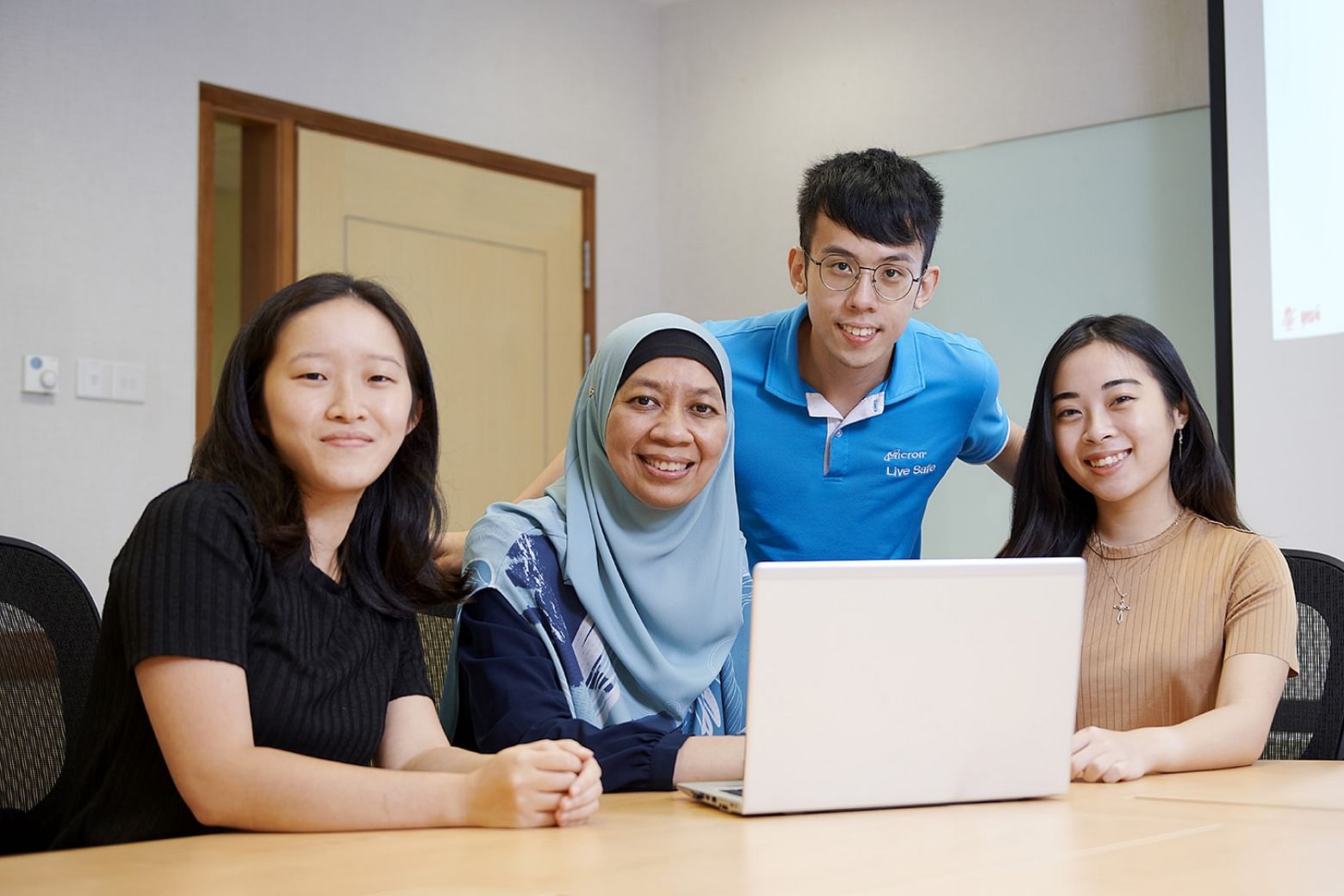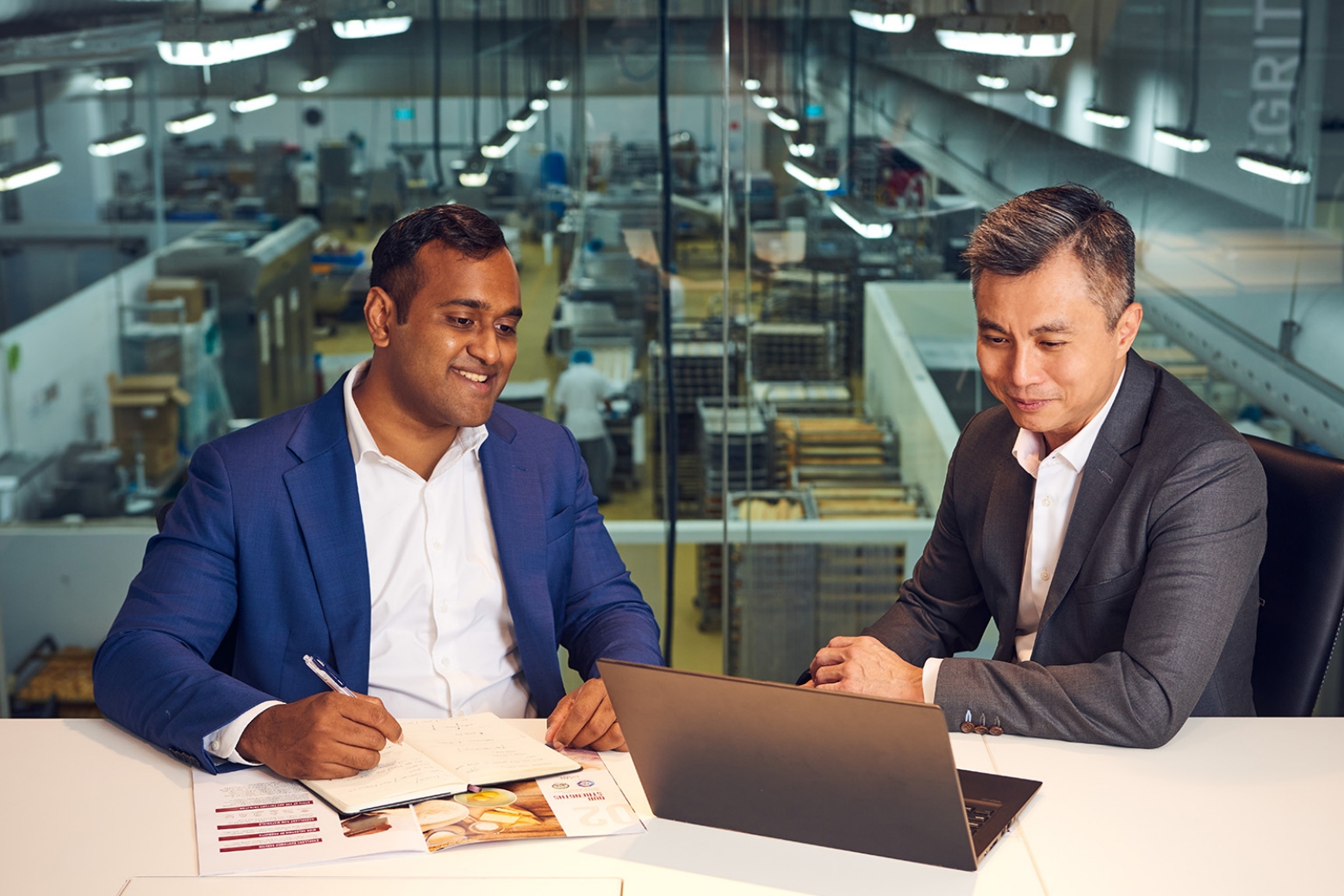BRANDED CONTENT
Companies nurture local talent and tap innovation to grow despite challenges
Two Singapore businesses share how they are thriving even with pandemic disruptions, thanks to digitalisation and upskilling efforts
Rachel Chia, Content STudio
Follow topic:
Persistent inflation, a slowing global economy and geopolitical tensions – these are some of the ongoing challenges that Singapore faces, said Trade and Industry Minister Gan Kim Yong at the Ministry of Trade and Industry (MTI) Economic Dialogue last month.
How can businesses in Singapore stay resilient amid such economic headwinds? The answer could be found in refreshed Industry Transformation Maps, rolled out by Singapore's Future Economy Council to address systemic shifts in the global economy.
These maps guide firms across 23 industries in increasing productivity through digitalisation, and equipping their people with skills for greater value creation. Two companies that have done just that share their journeys. Their key takeaway: To be resilient, tap tech and talent.
Leading the charge in smart production
You would likely have used Micron’s memory chips, even if you haven’t heard of the semiconductor giant. The American company’s chips are the heart of consumer products such as smartphones, laptops, cameras and even cars.
A large proportion of these chips are produced in Singapore at two manufacturing facilities in Woodlands, and an assembly and test facility in Bendeemer.
Even as severe chip shortages and disrupted manufacturing made headlines amid the Covid-19 pandemic, Micron continued to innovate.
The company was able to launch two new flash memory chip designs within the last two years, thanks to its transition to smart operations in manufacturing processes.
One such process is artificial intelligence (AI)-enabled defect inspection. “In the old days, we used to have operators making judgement calls on the workmanship of products. Now, out of 10 situations in the manufacturing process, AI can make a judgement for nine,” says Mr Ranganathan Padmanaban, 43, the firm’s director for new product introduction and assembly engineering for solid state drives (SSD).
“Expectations on quality and consistency of output have increased tremendously,” he adds. “Given the complex nature of these products, we need smart machines and AI tools to augment human efforts to do that.”

The firm has also automated manufacturing processes, and created systems to harness data, track anomalies and manage changes in real time. Beyond manufacturing, AI tools – such as video analytics and wearable devices – have been adopted to maintain onsite safety and ensure safe distancing between employees amid the pandemic.
The ultimate aim is for its facilities to ride the wave of Industry 4.0, which sees manufacturing pushed to its most efficient via smart machines, AI, automation, and analytics.
This is one way the company thinks manufacturers can navigate global supply chain shocks. “Smart manufacturing keeps our decisions timely, consistent, and even automated, so we can adapt in real time to any local or global changes,” says Mr Ranganathan. “If my department hadn’t started these initiatives a few years back, we would not have been able to execute our plans today.”
Tapping on talent
Micron’s achievements are in part thanks to partnership with the Government, with many of its “first-of-its-kind” projects bearing fruit because of the Economic Development Board's support that helped it explore possible solutions.
Ideas for transformation are not only coming top-down, but also from its own staff. One example is a suggestion from an engineer in Ms Nurulhuda Jumahri’s team to restructure Excel databases used to generate production forecasts. Previous versions caused computers to freeze when opened, due to their file size.
The initiative took 1.5 years to realise and significantly improved the accuracy of its forecasts and turnaround. It was extended to Micron’s operations in other countries.
“We have workshops and are always learning new things,” says Ms Nurulhuda, 51, a manager in the materials planning division, of the growth mindset cultivated across the company. “I encourage my team to pick up programming and Structured Query Language (a standardised programming language also known as SQL), so when they perform data analysis, they can look at how to make it faster.”

All new Micron hires undergo a three-week training programme on foundational knowledge in the semiconductor space. And, where needed, the company supports further talent development.
“In school, I think about some scenarios that I can use to help the company fully automate tasks,” says process equipment engineer Jerry Chong, 37, who is taking a part-time degree in computer science sponsored by the firm.
“Additional knowledge helps us to build resilience,” he adds. “So even though I'm approaching my mid-career, I still feel very fresh.”
By the numbers
9 out of 10
AI can make judgement calls for nine out of 10 situations in defect inspection
Over 9,000
Employees work in Micron Singapore’s three facilities
3 weeks
All new Micron employees undergo a three-week training programme to learn about semiconductors
A buffet of upskilling options for staff
Join PastaMania as a service leader, and you’ll also walk away with bonus kitchen skills.
During peak hours, outlet and assistant outlet managers at the casual dining chain pop into the kitchen to man the pizza and deep-fryer sections, ensuring food can be churned out quickly to satisfy hungry diners.
This is among the measures the business has adopted to cope with record staff shortages in the food and beverage (F&B) industry since Covid-19. And its solution of “dual training” staff has paid off, allowing it to capture a 20 per cent jump in customer demand compared to pre-pandemic times.
“We've been doing this over the last two years very deliberately, tapping on Enterprise Singapore programmes to help fund training,” says Mr Brian Stampe, 51, chief operating officer at Commonwealth Concepts, which owns 20 F&B brands including PastaMania. “As we become more productive, the goal is to keep on raising salaries, so staff see there is a financial benefit.”
Moving up and across
Flexible workflows, where staff can help with different tasks when needed, are among a buffet of measures rolled out by Singapore-based investment firm Commonwealth Capital Group (CCPL). It aims to build resilience in each of its three business arms – food manufacturing, logistics, and F&B. The move was in response to a recent string of industry shocks, including disrupted supply chains and rising electricity, fuel and grain prices.
Commonwealth Concepts is CCPL’s joint venture with Far East Organisation.
Other initiatives by CCPL to revamp its approach to talent management include sending its over 1,000 staff for government-sponsored courses to develop cutting-edge skills in digitalisation, business transformation, robotic process automation and more.
Redesigned jobs now see marketing executives optimising customer order data from its loyalty programme to drive business decisions, while customer service executives, who analyse transaction information, know which products are often purchased together and can suggest optimal warehouse layouts.

“More broadly, the firm has also undertaken and further strengthened job redesign efforts through the Workforce Singapore Career Conversion Programmes, ranging from roles related to ground operations in food services to warehouse operations to roles in human resources and marketing,” says CCPL senior assistant director Joshua Rene Jeyaraj, 31.
CCPL is also receptive to employees who want to assume new responsibilities. “This has unlocked new areas of potential and benefited both the employee and the organisation,” he states.
Resolve to transform
Beyond its workforce, other areas CCPL’s investments in resilience are paying off are in machinery and technology.
A new cookie depositor will allow it to scale up its cookie production and healthier products, such as low-glycaemic index cookies and low-sugar pastries, while investments in state-of-the-art technology and new packaging machines helped it produce a line of plant-based meats and extend their shelf life up to a year at room temperature, allowing them to be sold to more overseas markets.
The company’s warehouses also have new management systems to optimise storage and deliveries – with which the firm plans to create scalable logistics models that can be replicated in new factories as it expands regionally.

To execute this total overhaul of the way CCPL does business was “difficult and painful”, requiring significant cost, time and effort, admits the firm’s executive director Daniel Tan, 54.
But the firm is committed to future-proof itself today, he adds, convinced that macroeconomic labour and supply chain issues are here to stay.
“If we don't do something now, we're just kicking the can down the road, and we’ll suffer even more when the time comes,” he says. “We’d rather transform in all these new and exciting ways, to become a more sustainable business.”
By the numbers
20
Commonwealth Concepts owns 20 F&B brands in Singapore, including PastaMania
20%
Staff training efforts enabled PastaMania to capture the 20 per cent increase in customer demand compared to pre-pandemic times
Over 1,000
…employees work across CCPL’s logistics, food services, manufacturing and trading businesses
This is the third of a six-part series titled "Transforming today for tomorrow's challenges" in partnership with the Ministry of Trade and Industry

